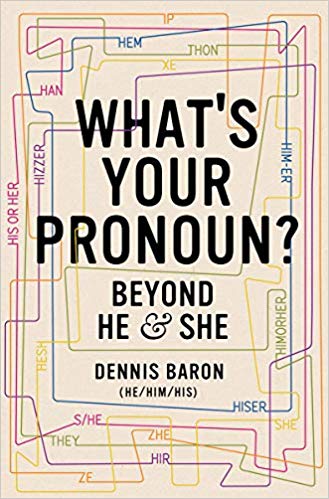We all know that English is a flexible language, as in google becoming a verb. Yet some say it needs to be even more flexible — there is a word for being behind in your work (backlog), but what’s the word for forging ahead?
A more pertinent example is the quest for a gender-neutral, third-person pronoun. When gender is either unknown or unimportant, continuing to use he or she just doesn’t seem right. So far the alternative has been the singular they, as in “Did they leave a message?” But to most people this is an unsatisfactory solution, so unsatisfactory it’s inspired an entire book.
In What’s Your Pronoun? Beyond He and She, author Dennis Baron investigates the historical context of this mundane part of speech, showing how, over the centuries, people have coined over 200 new gender pronouns. (Do you recall hir and zie? Didn’t think so.) A pronoun may seem lowly, but it really helps establish both our rights and our identities. Yet none of these single, gender-neutral alternatives have caught on.
So where are we going from here? Given this long history of pronoun futility, it appears we have no better choice than the singular they. If that’s hard to accept, consider the history of you — once reserved for groups of people or the likes of a king, eventually it became accepted as a respectful way to refer to anyone. That idea met its own share of resistance, but as Baron writes, “Variation and change are natural, normal and inevitable for any language.”
From “People Have Invented More Than 200 Gender-Neutral Pronouns. Here’s Why ‘They’ Is Here to Stay” by Katy Steinmetz (https://time.com/5763175/they-as-singular-pronoun/?).

